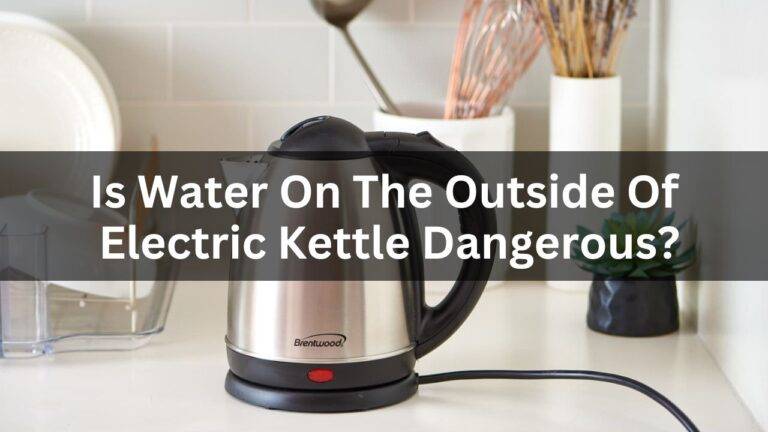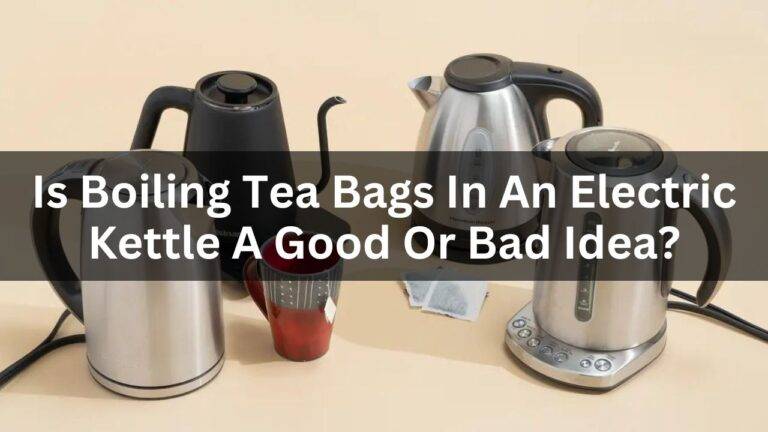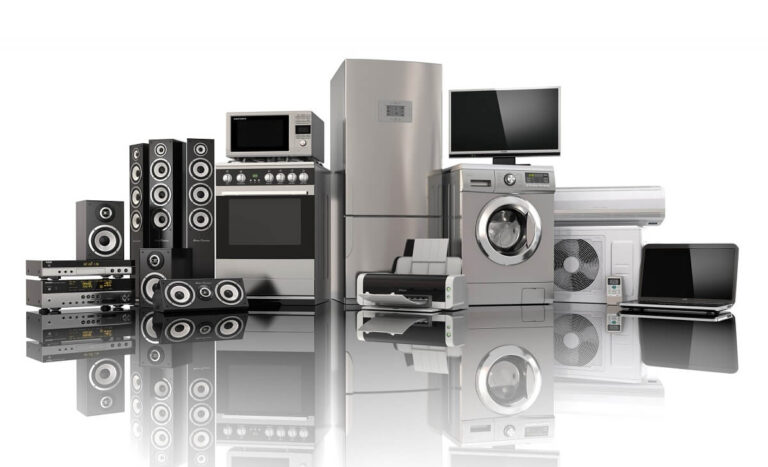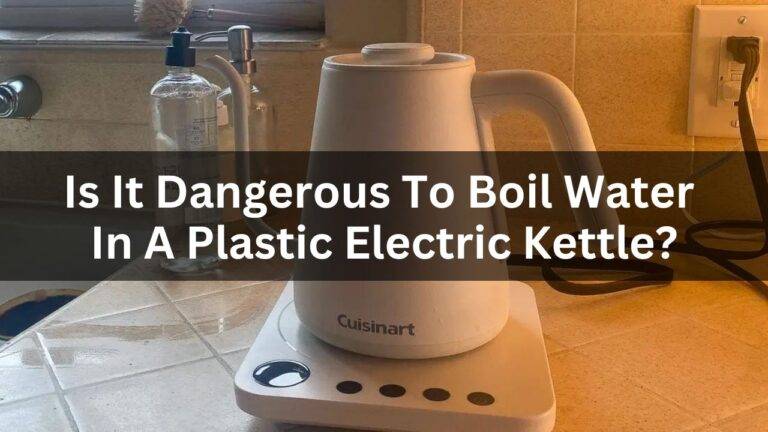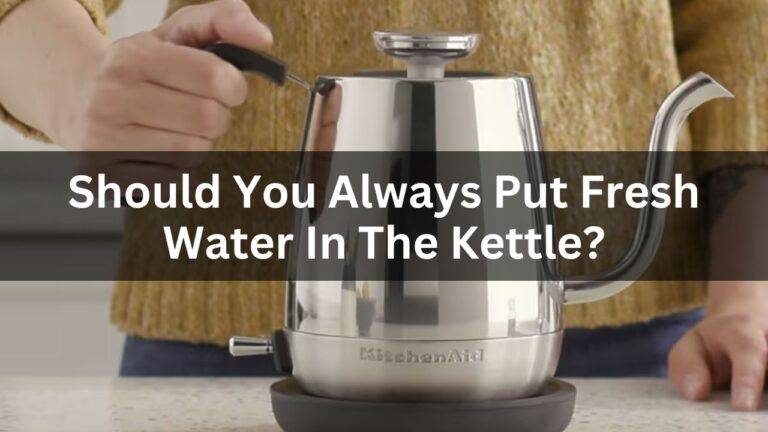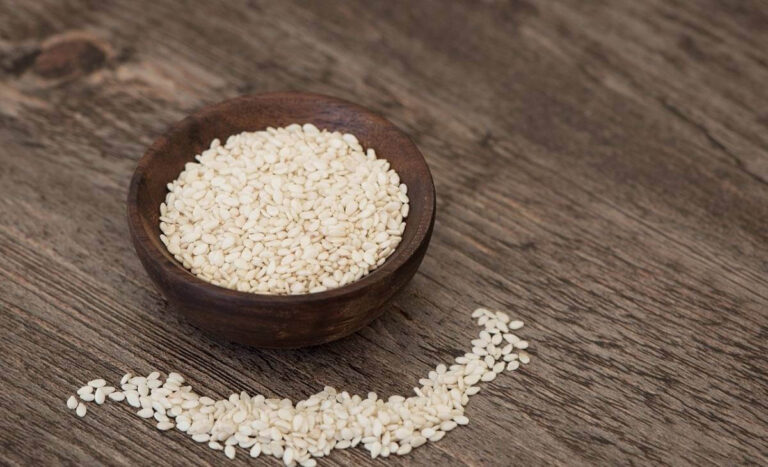Can I put cold water in an electric kettle?
Does it make a difference whether you use cold or hot water in the kettle? The main purpose of an electric kettle is to boil water. It doesn’t matter whether the water is
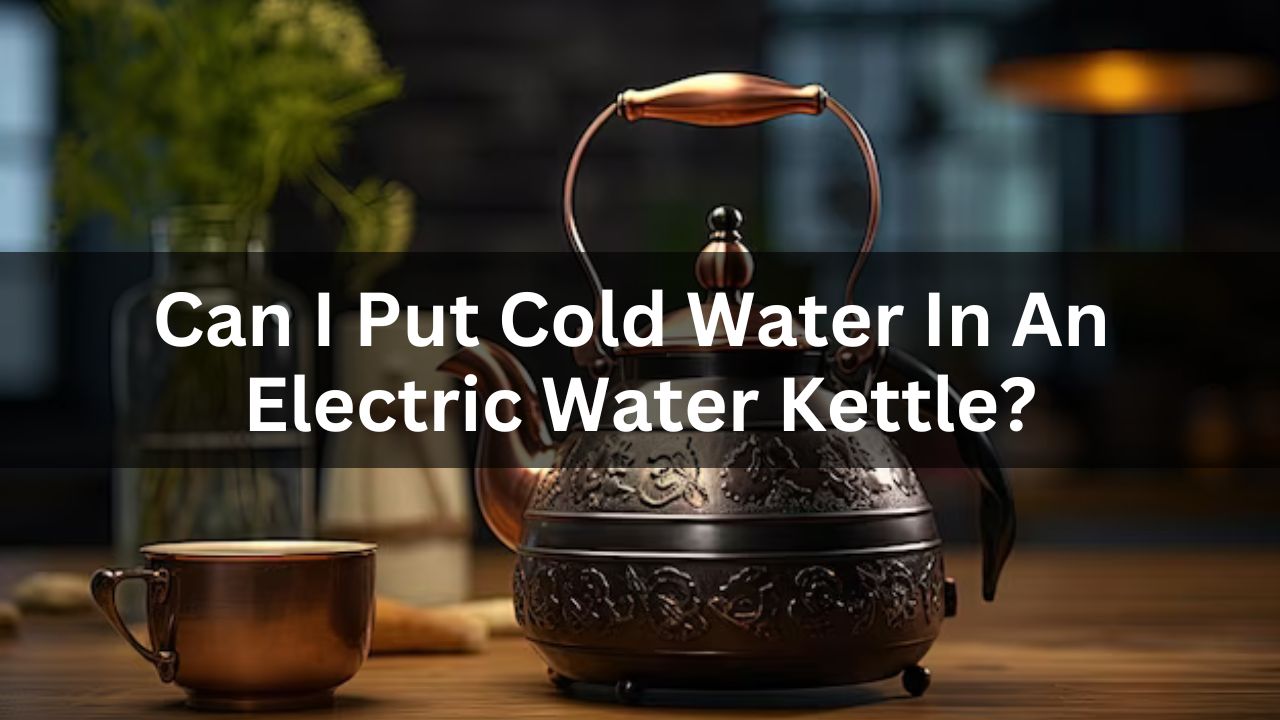
Does it make a difference whether you use cold or hot water in the kettle? The main purpose of the electric kettle is to heat water, it doesn’t matter if the water is hot or cold.
That’s why you can easily use cold water in it.
Actually, rather than waiting for the tap water to cool down, the majority of people use cold water in their electric kettles. Since it is more convenient and quicker. People also prefer cold tap water because it contains more oxygen than hot water.
It is also preferred that the hot water we use is preserved in the heater for several hours and has many metallic impurities added to it. These impurities can cause many health issues.
This article will tell you whether you can add cold or hot water to your kettle. And what are the benefits of using cold water in an electric kettle?
Contents
Does Hot Water Have Higher Impurities Than Cold Water?
There is no major difference between using hot or cold water in a kettle. But some people prefer to use cold water. We obtain a fresh supply of cold water from the nearby water plant when we turn on the tap.
The pipelines that lead to our homes provide us with cold water. However, we always maintain a significant stock of hot water in our hot water heaters.[1]
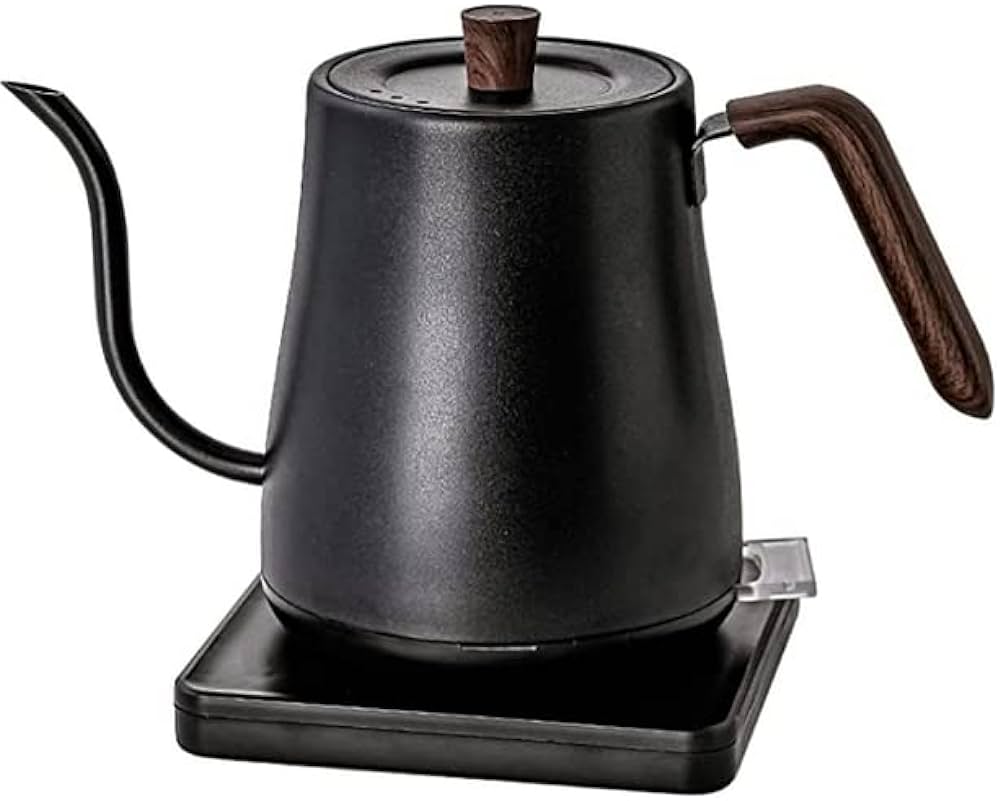
The metal construction of the hot water heater is its peculiarity. Water kept in the heater may absorb some of the minerals that build up within. Furthermore, because it is kept in an industrial-grade metal, it may detect the metallic flavor even if it doesn’t pick up minerals.
These metal impurities can cause many dangerous diseases in humans. That’s why If you are using hot water, always strain it.[2]
Also Read: Is It Dangerous To Use A Rusty Kettle?
Does Cold Water Make Tea Tastier?
When it comes to tea, oxygen has a big impact on the flavor of the water. Most people say that cold water contains more oxygen. Due to this, it gives more flavor to tea. The molecules of water expand and move around more when it gets hotter.
Hot water in your home stays heated in a hot water heater for a longer period of time than cold water that is brought to a boil.
More oxygen is released as a result of the oxygen escaping. I am aware of the thoughts that some of you scientists are having.
There can only be two oxygen molecules in water. It’s H2O, after all. However, I am not discussing the chemical composition of water here.
I am discussing the solubility of oxygen in water. That means that although the chemical composition won’t change, the oxygen saturation point in water will.[3]
Also Read: Is it Safe to Keep the Tea Kettle Plugged In?
To What Amount Of Cold Water Should I Add To The Kettle?
Always keep an eye on the amount of water while adding water to the kettle. Add ½ to ¾ of cold water to the tea kettle. Because both too little and too much cold water in the kettle can be harmful to the kettle.
If you add less water to the kettle, there is a risk of the kettle overheating. It can affect its heating element. An electric tea kettle is useful for making tea and coffee. To prevent any possible problems, it is crucial to utilize it appropriately.
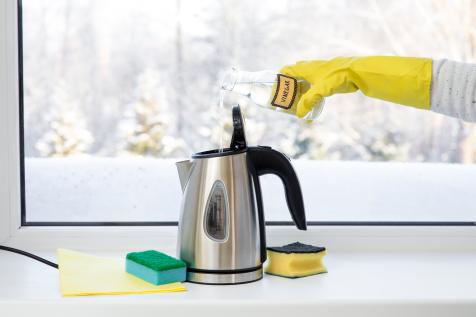
Overfilling the kettle is a typical mistake that people make and can cause a number of issues. With the water-level marking on our electric kettle, you can accurately boil the amount of water you need.
Overfilling the kettle could cause the water to spill out and harm the heating element. A potential outcome could be an electrical event.[4]
Also Read: Does The Steel Body Of A Kettle Get Shocked?
Can We Use Ice In The Electric Kettle?
You can use ice in the electric kettle but this is not a preferred practice. The danger would arise if the ice made contact with just a few spots on the kettle’s bottom or electric element. If this is the case, the element may overheat in other areas.
Because every centimetre of its length is filled with electrical energy, it should work perfectly if you can locate some water elsewhere, enough to cover the kettle’s element before adding the ice.
To ensure that the element remains submerged, simply avoid using the entire water in the kettle. This will ensure that boiling occurs more slowly when using ice instead of tap water, taking approximately twice as long.[5]
Final Words:
Since an electric water kettle’s purpose is to heat water, it can be used with either cold or hot water. However, some people prefer to use cold water in it due to convenience. By using cold water, you don’t have to wait for the tap water to cool down.
Filling kettles from a cold tap produces better-tasting tea because it includes more oxygen than a hot one. This is a practical reason. While hot water will boil a little quicker, speed isn’t the main concern.
Instead, your home’s water pipes supply the cold water, and your water heater produces the hot water, which later on may taste a little metallic due to storage. These metal pollutants can be the cause of many diseases.
FAQs
Q: Is there any specific type of water recommended for electric kettles?
A: Cold tap water is commonly used in electric kettles. Using filtered or purified water can enhance the taste of beverages and reduce mineral deposits in the kettle.
Q: How long does it take for an electric kettle to heat cold water?
A: The heating time varies depending on the kettle’s wattage and capacity. Generally, electric kettles can bring cold water to a boil in a few minutes.
Q: Can using cold water impact the lifespan of the electric kettle?
A: No, using cold water as intended does not impact the lifespan of an electric kettle. Regular descaling and proper maintenance contribute to a longer lifespan.
Q: Are there any safety considerations when using cold water in an electric kettle?
A: There are no safety concerns associated with using cold water. Ensure the kettle is filled within its recommended capacity to prevent spills and follow the manufacturer’s guidelines for safe operation.
Q: Is it safe to put cold water directly into an electric water kettle?
A: Yes, it is safe to put cold water in an electric kettle. Electric kettles are designed to heat cold water efficiently.
Q: Can putting cold water in the kettle impact the quality or taste of beverages?
A:Cold water does not affect the taste, but the quality of the water and any impurities present can affect the overall taste of the drink.
Q: Should I avoid using extremely cold water in the electric kettle?
A: It is not necessary to avoid extremely cold water. Electric kettles are designed to handle a range of water temperatures safely.
Q: Can using cold water in the kettle cause condensation or water droplets on the exterior?
A: Condensation may occur during the heating process, but this is a normal part of the kettle’s operation and does not pose a safety risk.
Q: Is there an optimal water temperature to start with for various beverages?
A: The optimal starting temperature depends on the beverage. Cold water is suitable for most purposes, and you can adjust the temperature setting as needed.
Q: Does the type of water source (tap, filtered, bottled) impact using cold water in the kettle?
A: The water source can affect taste, but electric kettles are versatile and can be used with different types of water, including tap, filtered, or bottled.
Q: Can I mix hot water with cold water in the kettle for a desired temperature?
A: It’s generally not recommended to mix hot and cold water in the kettle, as the heating element is designed to heat water uniformly. Mixing may affect heating efficiency.
Q: Does the material of the kettle affect the use of cold water?
A: Different kettle materials handle temperature variations similarly. Using cold water is safe and compatible with various kettle materials.
Q: Can I leave leftover cold water in the kettle for the next use?
A: It is generally safe to leave cold water in the kettle between uses. However, for optimal freshness, emptying and refilling before each use is recommended.
Article you might be interested:
Is it good or bad to brew tea bags in an electric kettle?
Why Circuit Breaker Tripping When Using Kettle?

